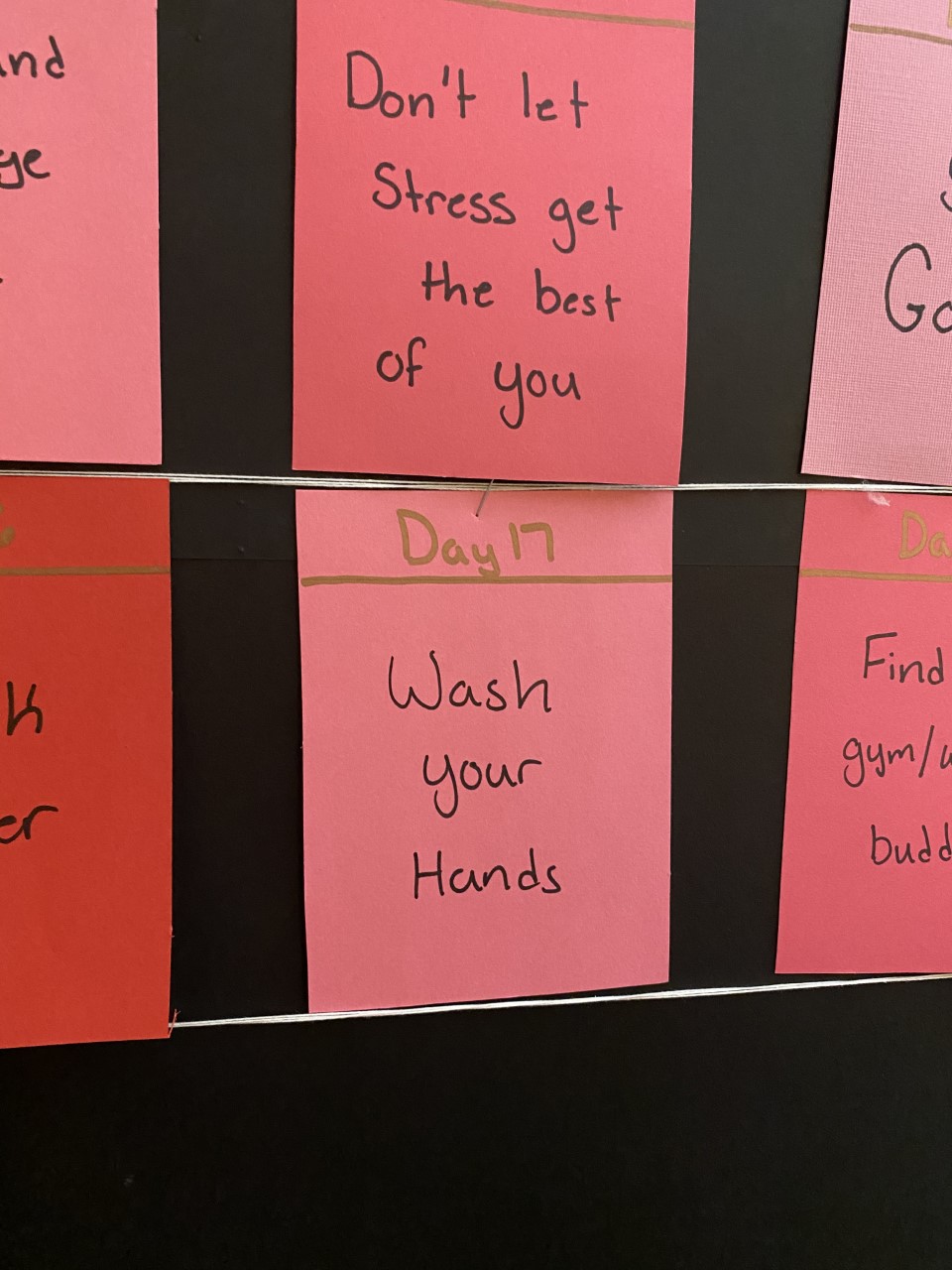
Kae Edgcomb, Contributing Writer
Pictures taken by Kae Edgcomb in the Office of Health Services, McKendree University
You have probably been seeing it on the news. Maybe you have heard jokes about it around campus. You might have discussed the topic in a class. It is hard to escape discussions to some capacity on the coronavirus. But what actually is the coronavirus? Is it really a virus named after a Mexican beer company?
To begin, let me explain what a coronavirus is. Coronaviruses were first documented in the 1960s. According to the Centers for Disease Control and Prevention, (CDC) the common human coronavirus typically causes a mild to moderate upper respiratory tract illness, just like the common cold or rhinovirus. Most people will have this virus at some point in their lives and have symptoms like a runny nose, headache, cough, sore throat, fever, and various secondary symptoms. In some cases, a coronavirus may lead to pneumonia or bronchitis, which is where it can switch from “no big deal” to “bigger deal.” This is especially true for the young, the elderly, those with compromised immune systems, or those with preexisting cardiopulmonary (heart and lung) conditions.
Historically, there have been two cases in which new coronaviruses have caused severe symptoms leading to public health emergencies. The two “bigger deal” coronaviruses are known as SARS-CoV (Severe Acute Respiratory Syndrome) and MERS-CoV (Middle East Respiratory Syndrome). Before I explain these, you should know that no human cases of SARS have been reported anywhere in the world since 2004, according to the CDC. This means the 2003 “outbreak” of SARS that killed 800 people worldwide was quickly contained. While any death too soon is tragic, the SARS outbreak was fatal to such a small proportion of the global population that it does not even begin to reach 1%. MERS-CoV does continue to have human cases, but all occasions isolated to the Arabian Peninsula are likely passed from camels to humans, not human to human. So unless you have been hanging around with camels on the Arabian Peninsula (and practicing less-than-ideal hygiene) you are not likely to be infected with this version of the coronavirus.

Now, onto the 2019 Novel Coronavirus you all came here to learn about. This virus is currently unnamed, but is often cited as 2019-nCoV in scientific sources. First of all, to quote Taylor Swift, “You need to calm down.” The worst thing anyone can ever do in situations like this is to panic or to create panic by spreading misinformation. The next thing to note is that this virus has been traced back to a “wet market” in Wuhan, China. These places are quite different from what an American might think of as a market. There are live fish and butchered animal parts mixing with various fluids and cross-contamination is everywhere. These markets are well-known sources of animal to human transmission of diseases. But please, be aware that this is common practice in many places across the world and not unique to only China. With that said, part of the reason the World Health Organization (WHO) has declared 2019-nCoV a World Health Emergency is to provide funding and resources to allow for a fast response to treat and contain the spread of this virus. WHO currently lists 2019-nCoV as a level-4 which means the US State Department is now advising all Americans to cancel all travel to China. This, while it may seem drastic, is one of the most effective ways of containing the spread of the virus until more can be studied. McKendree University has had no student travel to or from China to have any need for local concern.
On Wednesday, January 29, I took the time to meet with Beth Allan, Nurse Practitioner at McKendree University’s Health Services.
“I am more worried about people getting the flu and dying… than coronavirus,” Allan said when asked about what McKendree students should know about 2019-nCoV. “I want people to know safety precautions, washing your hands, don’t touch your face all the time … get adequate sleep, hydrate well– things that are common for any virus.”
This influenza or “flu” season, 2019-2020, has had more hospitalizations and more deaths than previous years. Overall, influenza, which is another respiratory illness passed in a similar way as coronavirus, has affected far more people than the current 2019-nCoV.
During the meeting with Allan, there was not yet a documented case of this virus spreading from one human to another. Since the meeting, the single case of transfer is in Chicago, IL. There the wife had recently traveled to Wuhan, China and spread the infection to her husband (meaning they were in close contact with one another). Both are age 60+ and are currently being treated in isolation. This is only the sixth case in the United States; the general public are not thought of to be at risk. That said, Lesa Auten, Certified Medical Assistant at McK Health Services, let me know she has enrolled McKendree in an Illinois State alert system call SIREN (State of Illinois Rapid Electronic Notification System). This system is specifically for universities to sign-up for alerts, and should any concerns come up in St. Clair County, this system runs 24/7 and will alert via email and text message directly to Auten if anything should escalate in our area, which is very unlikely at this time.

If students want to take extra precautions, especially if they are experiencing cold-like or flu-like symptoms themselves, face masks are available from Health Services. In general, wearing a face mask when you are the one with a cold helps contain the spread of the virus, but I know that wearing a face mask around campus might turn a few heads and cause some social discomfort. Internationally, face masks are far less stigmatized and both Allan and Auten commented that an international student had recently asked for a face mask to help contain symptoms. Again, Allan and Auten stress the importance of proper handwashing to keep yourself and others healthy.
Great piece Kae dispelling myths and reminding us of more important concerns. Gonna go wash my hands now 😉
Thanks, Kae! This is great!
Excellent information, Kae. Thank you for sharing with the McKendree community.